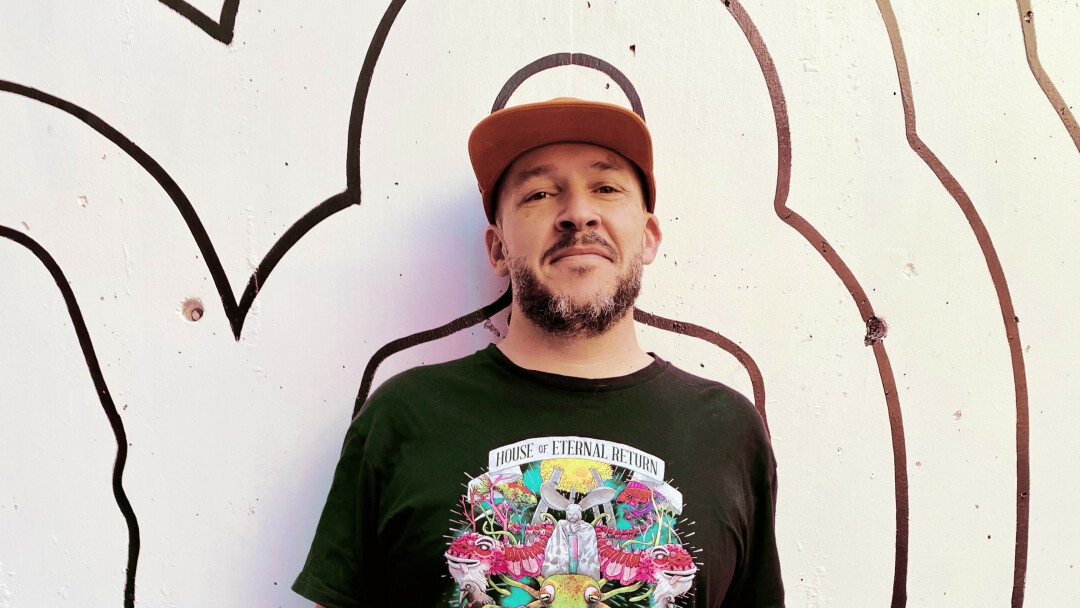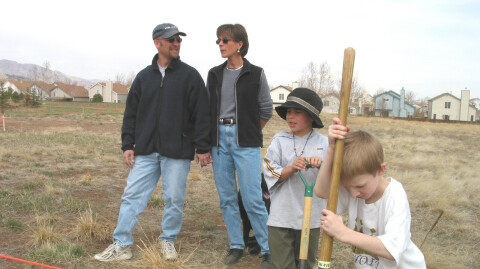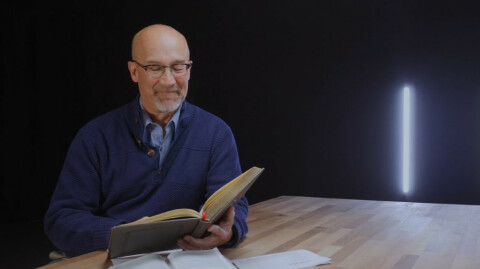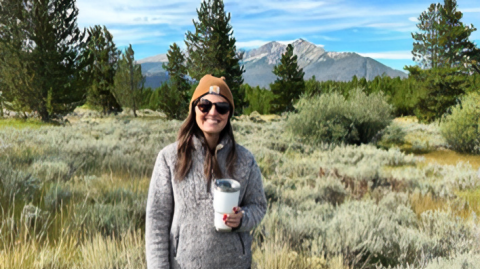
Hello Waterstone! We hope that Larry is having a restorative Sabbatical, and while he’s gone the Justice Team will continue with a BLOG TAKEOVER for the summer!
If you’ve been around Waterstone for a while, or even for just a short bit, you may have heard mention of our Justice Class. The Justice Class, now updated, condensed, and renamed “The Bible, Justice, and Me,” is one of the primary ways Waterstone helps people learn about and engage with God's heart to bring about his love, justice and mercy in our community. Throughout the summer a handful of participants are taking time to share their thoughts and experiences with the class.
I’m Paul Romig-Leavitt and this week it is my turn to talk about the topic of policing. I've been on staff as the Waterstone Tech Director for over a year now, and in this time, I've observed how Waterstone as a whole has engaged with matters of justice. The conversations seem to cut directly to deeply held beliefs about how we spend our time and money as well as notions of fairness and compassion, often without any identifiable result like a conversion or gospel profession. However, I have appreciated how many people at Waterstone have dared to wade into these deep waters and risk having their paradigms altered in the process. They have demonstrated a great deal of trust in a social climate that rewards extremes, living in a tangible way Waterstone’s heart to become like Jesus and live for others.
I saw this recently in the humility and courage displayed by a panel of police officers and victim advocates, who are Waterstone attendees, who spoke to the "The Bible, Justice and Me" class during Wednesdays at Waterstone. At no other time in my lifetime has policing been under such intense scrutiny, and not without good reason! There is simply too much evidence of racial disparities and history to sweep under the rug now. It is clear to me, from my reading and research, how power and fear have shaped our current justice system, leaving more victims than vindicated. Still, it is precisely into this messy reality that these civil servants who spoke to our class live day to day. Somehow, the Prince of Peace has equipped them to handle the tension in a world without black-and-white certainties and do their best to serve and protect the communities where they work and live.
My own life touched the outskirts of their experience because my father worked in the state corrections system as a parole officer for twenty-seven years. He worked for the state during a time when not everyone carried a gun, and he would have to walk into a dangerous negotiation with nothing but his skill and empathy. I saw the toll it took on him, not only because of the risks to his life but also because of the pressure he felt to wear and use his firearm. He retired after being hospitalized briefly for a psychiatric breakdown. This was not caused only by the stress of his profession, but it was a significant factor in the deterioration of his mental health.
As I grew older and was exposed to people who lived in neighborhoods different from the suburbs of West Greeley, where I grew up, I also saw that not everyone had the same experience of law enforcement as I did. I became more attentive to the accounts of Black people like James Baldwin and Ta-Nehisi Coates. I read the letter Dr. King wrote from his Birmingham jail cell. I listened to my own friends of color tell me what it was like when we went through the TSA checkpoints at the airport together. Now as a father of a young woman who is witnessing first-hand the complex landscape of when protestors and police intersect, my heart aches for healing. I am filled with wonder at all the beauty and brokenness worked out in fear and trembling within Christ’s family at Waterstone, the living and dying body of Christ.
As you continue to struggle with the tensions of policing in our country—and I do hope it is a struggle—The Justice Team would like to recommend one book, one podcast, and one film that are great companions on this journey. You probably won’t agree with everything you read or see, but that’s part of their value in our journey. I believe these works don't turn away from the pain and sin of our condition but ultimately give us a reason to hope. Also, these three selections are not strictly about criminal justice reform; instead, they are about the intersection of race and class with the justice system in America, which can unfortunately not be disentangled.
RESOURCES
recommended by The Justice Team
Warning: Portions of these works contain very upsetting and, at times, graphic descriptions of sexual violence, murder, and abuse; please use discretion and know your limits when reading or watching these selections.
A Book
The Black and the Blue: A Cop Reveals the Crimes, Racism, and Injustice in America's Law Enforcement, by Matthew Horace and Ron Harris (2018)
During his 28-year career, Matthew Horace rose through the ranks from a police officer working the beat to a federal agent working criminal cases in some of the toughest communities in America to a highly decorated federal law enforcement executive managing high-profile investigations nationwide. Yet it was not until seven years into his service- when Horace found himself face down on the ground with a gun pointed at his head by a white fellow officer-that he fully understood the racism seething within America's police departments.
Through gut-wrenching reportage, on-the-ground research, and personal accounts from interviews with police and government officials around the country, Horace presents an insider's examination of archaic police tactics. He dissects some of the nation's most highly publicized police shootings and communities to explain how these systems and tactics have hurt the people they serve, revealing the mistakes that have stoked racist policing, sky-high incarceration rates, and an epidemic of violence.
A Podcast
The Kids of Rutherford County, from Serial Productions
From Serial Productions and The New York Times, "The Kids of Rutherford County" is a four-part narrative series reported and hosted by Meribah Knight, a Peabody-award-winning reporter based in the South. In the podcast, Knight explores the world of one county's juvenile courts and describes a court shrouded in secrecy, which allowed something secretive and illegal to grow.
A Film
The 13th, by Ava DuVernay (available on Netflix)
"The 13th" is a powerful Netflix documentary by Ava DuVernay that explores the nexus of race, justice, and mass incarceration in the U.S., drawing its title from the 13th Amendment's exception clause. Utilizing archival footage, interviews, and compelling narration, the film claims to unveil the historical underpinnings of systemic racism within America's criminal justice system, illustrating how slavery's legacy has transformed into modern-day oppression, disproportionately affecting black Americans and perpetuating a profitable prison-industrial complex.





6 Comments
Great job Paul very precise narrative and very difficult topic that we are faced with on a daily basis in our lives. I look forward to researching the resources that you have provided as education is always the Best path, especially dealing with topics that no one really wants to talk about. In revealing our past, hopefully it will make us improve our future. God bless.
Thank you for sharing from your story and heart on this very important topic. And I'm looking forward to exploring the resources you shared.
Paul: Thank you for sharing this information!
I look forward to reading and viewing it.
God Bless You
“Learn to do right; seek justice. Defend the oppressed.Take up the cause of the fatherless; plead the case of the widow.” Isaiah 1:17
Thanks for taking on this hard subject!
Thank you so much for the encouraging words, friends! I appreciate you!
Yes, Chris, I completely agree with you that educating ourselves is always the first step. Putting ourselves in the student's place and being curious about everything we don't know is a humbling act but essential to any kind of growth!